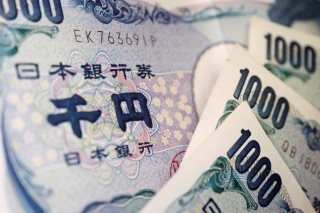Loading
Search
▼ Japan Quiet On Possible Yen-Buying Market Intervention
- Category:Other
The Japanese government on Wednesday declined to comment on whether it intervened in the currency market to arrest the yen's decline against the U.S. dollar, after the Japanese currency rose sharply following a temporary fall below the 150 mark overnight.
Finance Minister Shunichi Suzuki said rapid currency moves are "undesirable," adding that Japan stands ready to respond appropriately with "all options on the table."
Shortly after the yen broke past 150 per dollar overnight in New York, it rose sharply to the 147 yen zone. The development fueled market speculation that Japan employed another yen-buying, dollar-selling intervention.
Asked if Japan did step into the market, Suzuki told reporters, "I will refrain from answering that question. Japan's top currency diplomat Masato Kanda also declined to comment.
"Currency moves should be stable, and rapid ones are not desirable," Suzuki said, adding that they should be determined by fundamentals and market forces.
"The government is monitoring market developments very carefully with a sense of urgency. We will take appropriate steps against excessive volatility without excluding any options," he added.
Last year, Japan intervened by buying the yen for the dollar on multiple occasions. The first intervention was announced but markets were left guessing whether on each occasion thereafter authorities stepped in until official data were released.
So-called "stealth" interventions are seen as effective in keeping market participants jittery and wary about what authorities may do next.
After the dollar hit 150.16 yen at one point in New York on Tuesday, its highest since October 2022, it weakened quickly before recovering to trade in the lower 149 yen zone on Wednesday.
The yen has been trending weaker as the Bank of Japan remains committed to ultralow rates while the U.S. Federal Reserve is expected to go ahead with another rate hike amid its aggressive tightening cycle.
In that environment, the higher-yielding dollar is more attractive than the yen for market players. For resource-scarce Japan, however, the yen's weakness comes as a blow as it inflates the import costs of energy and raw materials.
Kanda, vice finance minister for international affairs, said Japan remains "firmly committed" to taking appropriate action. But he declined to say whether the yen's fluctuations last night can be labeled excessive.
© KYODO
Finance Minister Shunichi Suzuki said rapid currency moves are "undesirable," adding that Japan stands ready to respond appropriately with "all options on the table."
Shortly after the yen broke past 150 per dollar overnight in New York, it rose sharply to the 147 yen zone. The development fueled market speculation that Japan employed another yen-buying, dollar-selling intervention.
Asked if Japan did step into the market, Suzuki told reporters, "I will refrain from answering that question. Japan's top currency diplomat Masato Kanda also declined to comment.
"Currency moves should be stable, and rapid ones are not desirable," Suzuki said, adding that they should be determined by fundamentals and market forces.
"The government is monitoring market developments very carefully with a sense of urgency. We will take appropriate steps against excessive volatility without excluding any options," he added.
Last year, Japan intervened by buying the yen for the dollar on multiple occasions. The first intervention was announced but markets were left guessing whether on each occasion thereafter authorities stepped in until official data were released.
So-called "stealth" interventions are seen as effective in keeping market participants jittery and wary about what authorities may do next.
After the dollar hit 150.16 yen at one point in New York on Tuesday, its highest since October 2022, it weakened quickly before recovering to trade in the lower 149 yen zone on Wednesday.
The yen has been trending weaker as the Bank of Japan remains committed to ultralow rates while the U.S. Federal Reserve is expected to go ahead with another rate hike amid its aggressive tightening cycle.
In that environment, the higher-yielding dollar is more attractive than the yen for market players. For resource-scarce Japan, however, the yen's weakness comes as a blow as it inflates the import costs of energy and raw materials.
Kanda, vice finance minister for international affairs, said Japan remains "firmly committed" to taking appropriate action. But he declined to say whether the yen's fluctuations last night can be labeled excessive.
© KYODO
- October 4, 2023
- Comment (0)
- Trackback(0)


